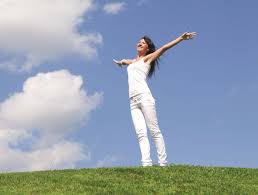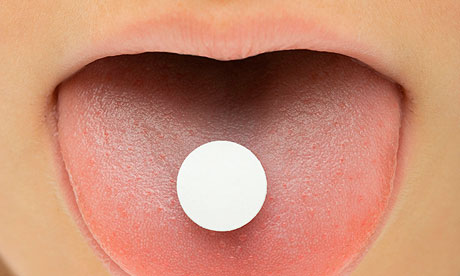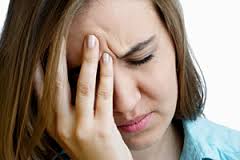Reflections
The pursuit of perfect health
Abstract
All of us strive for perfection. Achieving and maintaining a state of perfect health is a primary concern for many amongst us. There are various kinds of ‘pathies’ which are on offer to help us to do this. But the real help could also be sourced from within us. The faith we have. The willpower we exercise. The actions we take to help our bodies heal themselves. We could strive to be our own doctors.
On one of our luckier days when we happen to be in front of the idiot box, or when the latest internet-savvy gizmo is nestling in our palms, we are apt to run into a beautiful documentary which captures the birth of a Monarch butterfly. The radical transformation — from an egg to a caterpillar, then into a chrysalis, and finally into the Monarch butterfly — leaves us somewhat awe-struck and mesmerised. The universe appears to have programmed all living beings to strive to attain a state of perfection, balance and harmony.
When we speak of perfection, most of us refer to our external appearances, actions or conditions. Better inter-personal relations. Better status in society. Better harmony with our environment. Better compliance with laws, rules and regulations. Basically, we envisage a better, wealthier, happier and more humane kind of living.
The harsh slings and arrows of life make us aware of something we invariably take for granted — our physical selves. Those amongst us who have faced a medical crisis of some kind would often be found seeking perfection of the physical being through all the means available.
A rainbow of choices
We would be found tapping into the resources of the allopathic stream which offers diagnostic tools of high standards. We would be spell-bound at the capacity of this stream of medicine to look at the universe within us in a highly mechanical manner. We would be amazed at the extent of the division of various organs which function within its complex confines. A cardiologist would declare that our heart continues to beat in a rhythmic manner befitting a piece of classical music. A neurologist would put us under a scanner and tell us that our brain is firing on all its twelve cylinders. A gastroenterologist would put our digestive system under the microscope and assure us that it is discharging its assigned functions in a prompt and regular manner.
Nevertheless, we would still be feeling tired and exhausted and, well, not up to the mark when it comes to physical fitness. As patients, we would then be told of the virtue of psycho-somatic diseases, with broad hints that we could be suffering from some such unidentifiable ailment. Oh, the feeling of smug satisfaction we derive when being told that we appear to suffer from some mysterious disease which the scientists of today are yet to properly catalogue and name, let alone devise a treatment protocol for!
To some of us, the relatively older system of homoeopathy may sound better. We would find that it is more intuitive in nature. The medications are milder, with fewer side-effects. These might temporarily increase the severity of our symptoms, thereby indicating that a real cure is on its way. After a detailed one-to-one with the physician, we would be back to our ‘popping-the-pill’ routine.
The same goes for the Āyurvedic or Yunanī streams of healing. The physician would check our pulse and arrive at the disharmony in our bodies. Dietary restrictions would need to be followed.
Our pursuit of perfection does not end here. A brief stint at a health centre run on the principles of yoga, meditation and naturopathy might revitalise our physical and mental systems and show us the way to get out of our ‘pop-the-pill’ syndrome. The focus of this approach is on detoxifying the body and also training us to give up the luxury of indulging our taste-buds. Overall, it brings us closer to Mother Nature, a factor which is sorely missed by those of us who live in highly congested urban settings.
Sure enough, we enjoy the more holistic way of treatment offered under the alternative streams of medicine. These treat us as a composite whole of the body-mind-vital and not merely as an assembly of several parts which continue to function in their individual isolated glory.
We try our hand at flower therapy, colour therapy, magneto-therapy, acupuncture, acupressure, and several others. When it comes to healing, we have a wide range of choice of systems to choose from. Many of us try to take a more integrated and eclectic approach, using the best treatments from diverse streams of medicine. We do it based on the faith we have in the physician as well as in the medicine. This plays a crucial role in the healing process.
Building up our inner resilience
When we push ourselves to do something we essentially like doing, we do not get tired. The body and the mind do not revolt. Instead, they bask in the inner glow of satisfaction and happiness. Scientists would call it ‘eustress.’
However, most of the time, we experience distress. We face situations in life which do not allow us to exercise an option of either ‘fight’ or ‘flight.’ Stress built up over a long time tends to be disastrous. The good news is that if stress is directly proportional to external factors, it is also inversely proportional to our internal resilience. Some people tend to take an event very lightly. For others, the same event could be highly demoralising. It depends on how strong we are from within.
How do we build up inner resilience? How do we achieve a better level of harmony between our inner and outer selves and between our heads and our hearts?
The Divine within us can guide us in this respect. If we were to live in harmony with nature, it would help. If we could change our dietary habits, we could enjoy better well-being. If we were to control our negative emotions and live only in pure and positive ones, our cells would get healthier. If we smile, it would take away a lot of stress from our poisoned systems. If we feel a deep sense of gratitude within us — say, for simply being alive — positive vibes would generate the soft glow of self-fulfilment inside us, helping us to recover earlier. We would radiate happiness all around us.
The mind exercises a great deal of control over our body. It is surely within our powers to train it to give a positive message to the diseased cells within us. This, compounded with faith in the remedy, can work miracles.
What happens if we fail in our attempts, one might well ask. Not to despair. No effort goes wasted. Perhaps, we shall not suffer as much as we might have done had we continued in our state of blissful ignorance. Secondly, the purpose of our birth might just be to reduce human suffering. We might end up bringing succour to others who suffer from a similar ailment. Thirdly, by offering ourselves as a guinea pig and a living human laboratory, we might make a modest contribution towards advancing the knowledge about a particular disease afflicting mankind.
Of Nature, nurture and niftiness
As patients, we aim to gain two kinds of freedom — freedom from the ailment and freedom from the remedy. How do we become and remain independent of all kinds of doctors and healing systems? Can we become our own doctors?
What we are and what we shall become is only controlled by our actions. The science of epigenetics shows that genes are not only inherited and transferred to our progeny; these also get altered by our actions and the environment. It is not only about what Nature has provided us with. It is also about how we have been nurtured and how clever we are in the actions that we take.
We can will ourselves to heal faster. We can open up ourselves and tap into the infinite energy swirling about in the universe. We could draw a lot of inspiration this way. Our intuitive faculties also come into play and help us in gaining freedom from ailments as also from medications. The potential of our bodies and minds can be tapped better.
The change has to come from within us — from the core of our psychic being. The aspiration has to be genuine. It has to permeate all our thought-processes and even our actions. A constant remembrance of the divine Power within us can be the panacea for all our ailments — a key to achieving perfect health.
In Gitanjali, Rabindranath Tagore proposes: “Where tireless striving stretches its arms towards perfection (1)”. Even though ‘perfection’ may not be attainable in reality, what matters is the ‘tireless striving’, which could well prove to be a reward in itself. ‘Perfection’, like happiness, need not be a station one arrives at, but a mode of travel, making the journey interesting and worthwhile.
Reference
1. Tagore Rabindranath. Tagore for You. 3rd ed. Kolkata: Deep Prakashan; 2011, p. 45.
Ashok Kumar Bhatia is a management advisor and writer who lives in Pondicherry, India. He blogs at www.ashokbhatia.wordpress.com.
Share with us (Comments,contributions,opinions)
When reproducing this feature, please credit NAMAH,and give the byline. Please send us cuttings.




